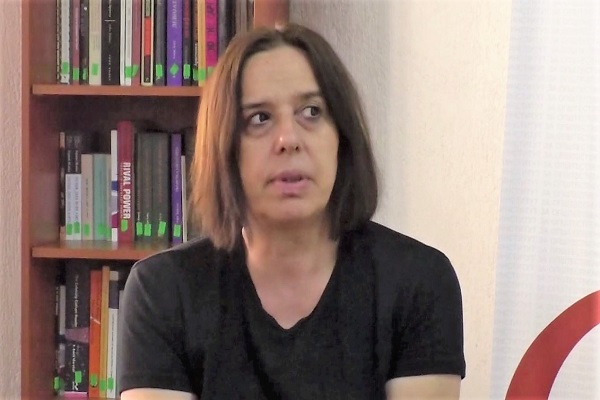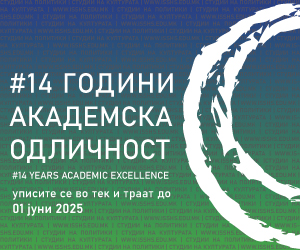by: Katerina Kolozova
[dropcap font=”arial” fontsize=”45″]T[/dropcap]he Prespa Agreement allows for the national identity to be determined in pure and unequivocal political terms without romantic nationalism atavisms, that is, to determine based on the principle of self-recognized determination.
When it comes to the issue that the identity of the Macedonian people is somehow threatened with the Prespa Agreement, I have been publically claiming for months and explaining that not only is the identity not threatened, but on the contrary, that with this Agreement the identity of the Macedonia ethnic community in Republic of Macedonia is preserved. With this I do not refer to any of my private outbursts on Facebook or Twitter, but I am talking about my published texts, columns, both here and abroad, of which also part in Greece.
Whenever a debate was opened in the previous period in regards to this issue, the opponents of the Agreement refused to directly discuss the items pertaining to Article 7 of the Agreement, which quite clearly stipulates that both parties have the right to use the term in their own way. This implies assigning their own meaning for their own history, their own cultural heritage, their own language as part of something that profiles the identity.
In other words, Article 7 allows for the term to be used in completely different ways assigning its own meaning. This means that Article 7 relies on or is a materialization of the principle of identity self-determination. With this, for the first time, we receive from some of our neighbours, recognition of identity self-determination from Greece, even before Bulgaria. A historical step forward is being made from both sides in terms of some kind of national histories in the region. For the first time, instead of in historical folklore and romantic nationalism terms, the identity is being determined in purely political terms. This agreement allows for the national identity to be determined in purely unequivocal political terms without historical – romantic atavisms, that is, to be determined based on the principle of self-recognized determination.
There was also a group of critics who did not refuse to discuss Article 7, but still managed to resent something in it. I consider that, from the identity aspect, the advantage of this agreement is Article 7, and only an advantage, not a shortcoming: the fact that the Macedonian side of the agreement can determine itself as Macedonian in the sense of people, language, ethnic group or nation; the term ethnic community in our country is constitutive for the concept and for the reality of the nation. We use the term people or nationality, which principally in our legislation is already translated into English as ethnic community. Article 7 in this sense as well, allows us to use the term Macedonian in unlimited ways.
The only limitation, in my opinion productive limitation (that is, it is not limitation, but delineation that allows us an identity advantage), is the crystallization of the use of the term “Macedonian” in a national and ethnic sense, as we use in a limited way on the territory of Vardar Macedonia, or what once used to be Socialist Republic of Macedonia. For me this is not a shortcoming, but rather an advantage, because on this territory, in this country, in that Yugoslav Federation we have formed that national identity. Here is where it received a definition, a standard language, literature, here is where it received a Macedonian Academy of Sciences and Arts…The opportunity to limit it on the history of this territory or nation/state gives us a crystallized identity image with which the minorities in the neighboring countries will be able to identify themselves.
Let’s not forget that there are appalling confusions because the Greeks have their own identification as Macedonians. In their country it is some kind of cultural-regional identity. It all comes down to an absurd situation where “Rainbow”, Slavophones that call themselves Macedonians, and the Hellenistic nationalists are saying “I am Macedonian” and “I am Macedonian too”.
How to resolve that confusion? How not to have one swallow the other so as not to have any assimilation? How else, if not to allow “Rainbow”, to that Slavophone minority in Northern Greece to declare itself as Macedonian, in the sense Macedonians from Republic of Macedonia. Such a solution is patriotic, and not vice versa. Precisely because it is the referent that we identify ourselves by, the signifier “Macedonian” – refers to that referent, to that group of people, to that territory – it allows us identity crystallization.
I consider that these arguments in favor of the Agreement are patriotic, and not ones of compromise or “cosmopolitan”. Completely opposite of what I encountered as criticism in the past period.
The article is part of the project “Identity Loss or …?” implemented by CIVIL in cooperation with the Heirich Böll Foundation.
This post is also available in: MacedonianAlbanian





